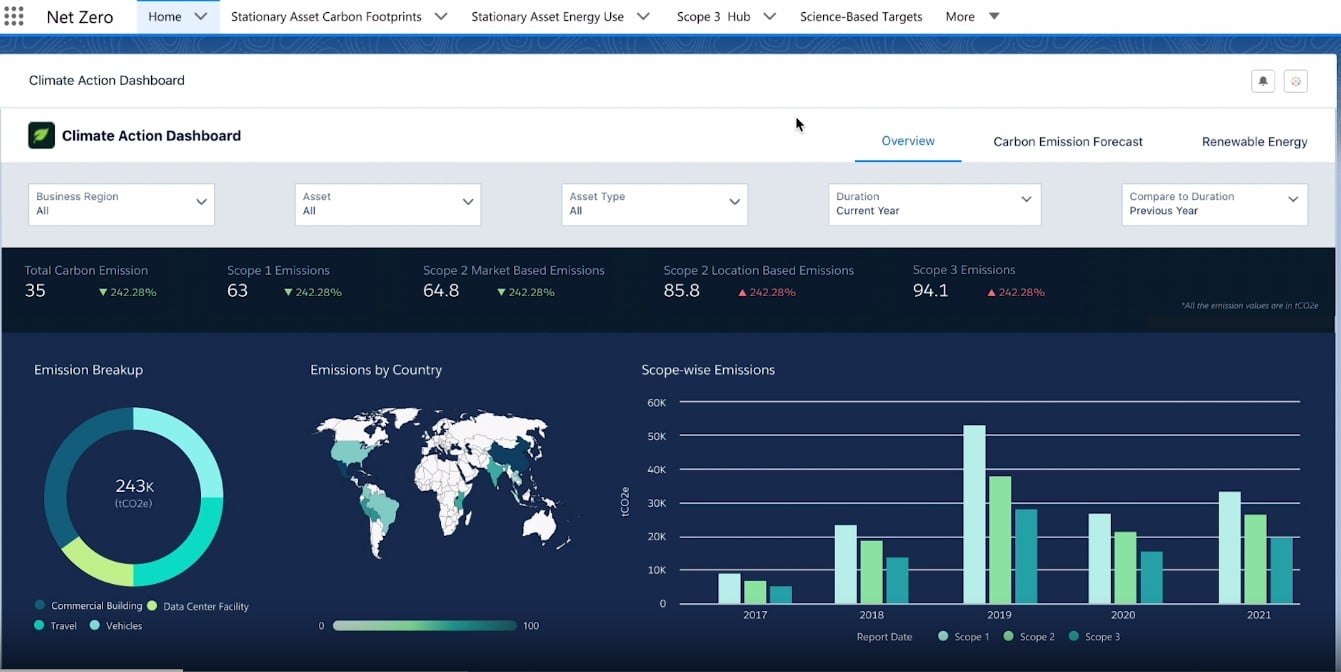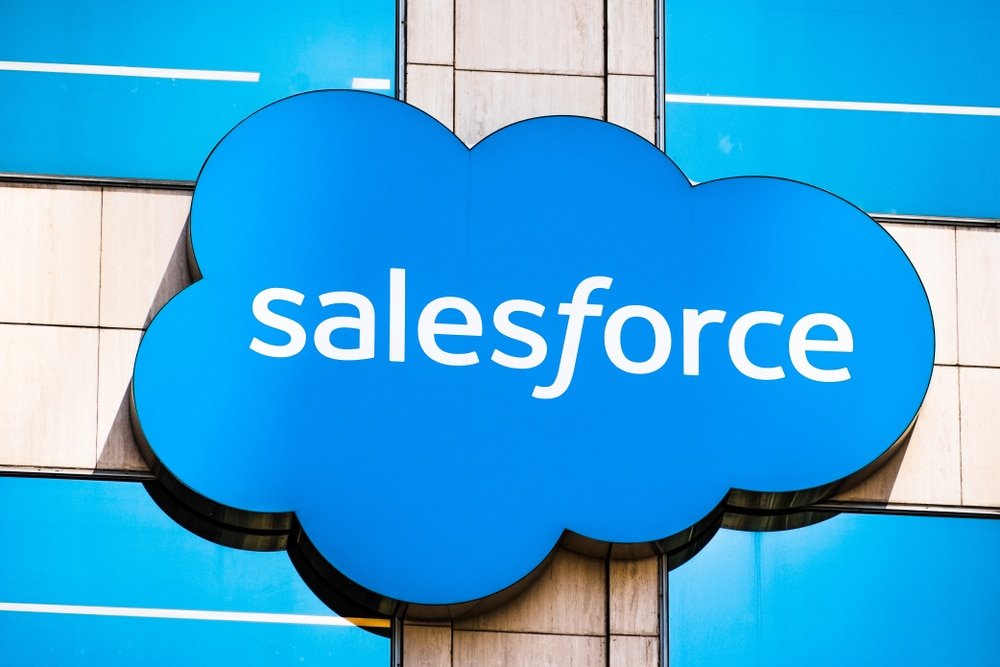At Dreamforce 2023, Salesforce revealed that it’s harnessing the power of AI technology to revolutionize its environmental, social, and governance (ESG) reporting platform, Net Zero Cloud, to help companies thrive in a rapidly evolving regulatory landscape.
Powered by “Einstein”, Salesforce Net Zero Cloud’s generative AI capabilities will suggest reliable, auto-generated responses to help businesses simplify the process of ESG reporting. Emphasizing the role of their platform, General Manager and VP Ari Alexander noted:
“Equipped with Einstein, Net Zero Cloud will help simplify the process of reporting ESG data, offering a valuable solution that any company can leverage towards achieving net zero.”
ESG Reporting Towards Net Zero
ESG offers a set of criteria through which to determine the impacts of a company on people and the planet. The “E” particularly focuses on environmental stewardship and shows the performance of the company’s efforts towards climate change. This is the main criteria that Net Zero centers on.
Addressing such a great concern for companies, Salesforce created the Net Zero Cloud as a comprehensive sustainability solution. It allows corporations to easily access and report on their environmental footprint for all scopes – 1, 2, and 3, as shown below.

Starting next year, about 50,000 businesses, including multinational companies based in the US, must comply with the EU CSRD. The new directive requires companies to report both climate-related financial risks, societal impact, and supply chain emissions (Scope 3).
Salesforce further revamped its Net Zero Cloud by adding two more capabilities: CSRD Report Builder and Materiality Assessment. The first one automates the generation of CSRD reports while the second aids companies in gauging what’s “material” to focus on.
The Power of AI in Generating ESG Reports
According to McKinsey, a successful ESG implementation can lower operating costs by up to 60%. But that is in exchange for a lot of time that finance officers have invested in collecting and disclosing ESG data.
This is where generative AI technology becomes helpful as is the case with Salesforce’s Einstein for Net Zero Cloud.
With Einstein, the platform will suggest responses based on prompts that align with certain reporting framework criteria to help a company simplify its ESG reports authoring process.
For instance, Einstein can refer to the previous year’s ESG reports, uploaded impact or compliance reports, and other data uploaded to the cloud platform, such as carbon emissions.
Einstein will then utilize the data to generate automatic responses for every item in the report.
The other Net Zero Cloud innovations will further help companies take charge and manage their ESG disclosures more efficiently. They are important reporting tools as governments begin to make ESG disclosures mandatory.
The CSRD Report Builder particularly enables businesses to generate ESG reports in line with CSRD requirements, such as “double materiality”. This new capability further broadens the scope of the platform’s report builders.
The other feature of materiality assessment will help ESG managers determine the aspects most material to the company. With ESG-align results, the company can then design their ESG reporting strategy better.
Various companies have been using Salesforce Net Zero Cloud for their ESG disclosures.
The iconic winter sports brand Rossignol, for instance, is using the platform to manage its carbon emissions. Doing so helps the company become accountable for its environmental responsibility and accelerate its journey to net zero. Rossignol is investing in nature by taking part in the global movement committed to growing 1 trillion trees by 2030.
Salesforce has also shown its own climate commitment by implementing multiple initiatives at COP27 in Egypt last year.
The cloud-based tech company has also launched a first-of-its-kind carbon credit solution, the Net Zero Marketplace, in 2022. It’s a trusted platform that makes the process of buying carbon credits easy and transparent.
Einstein for Net Zero Cloud will be available in Spring 2024 while the CSRD Report Builder and the Materiality Assessment features will be available starting October this year.
As ESG reporting becomes increasingly mandatory, Salesforce’s commitment to sustainability shines through, offering a valuable tool for businesses striving to achieve net zero. Its latest Net Zero Cloud innovations empower companies to navigate ESG disclosures more easily and more efficiently.

